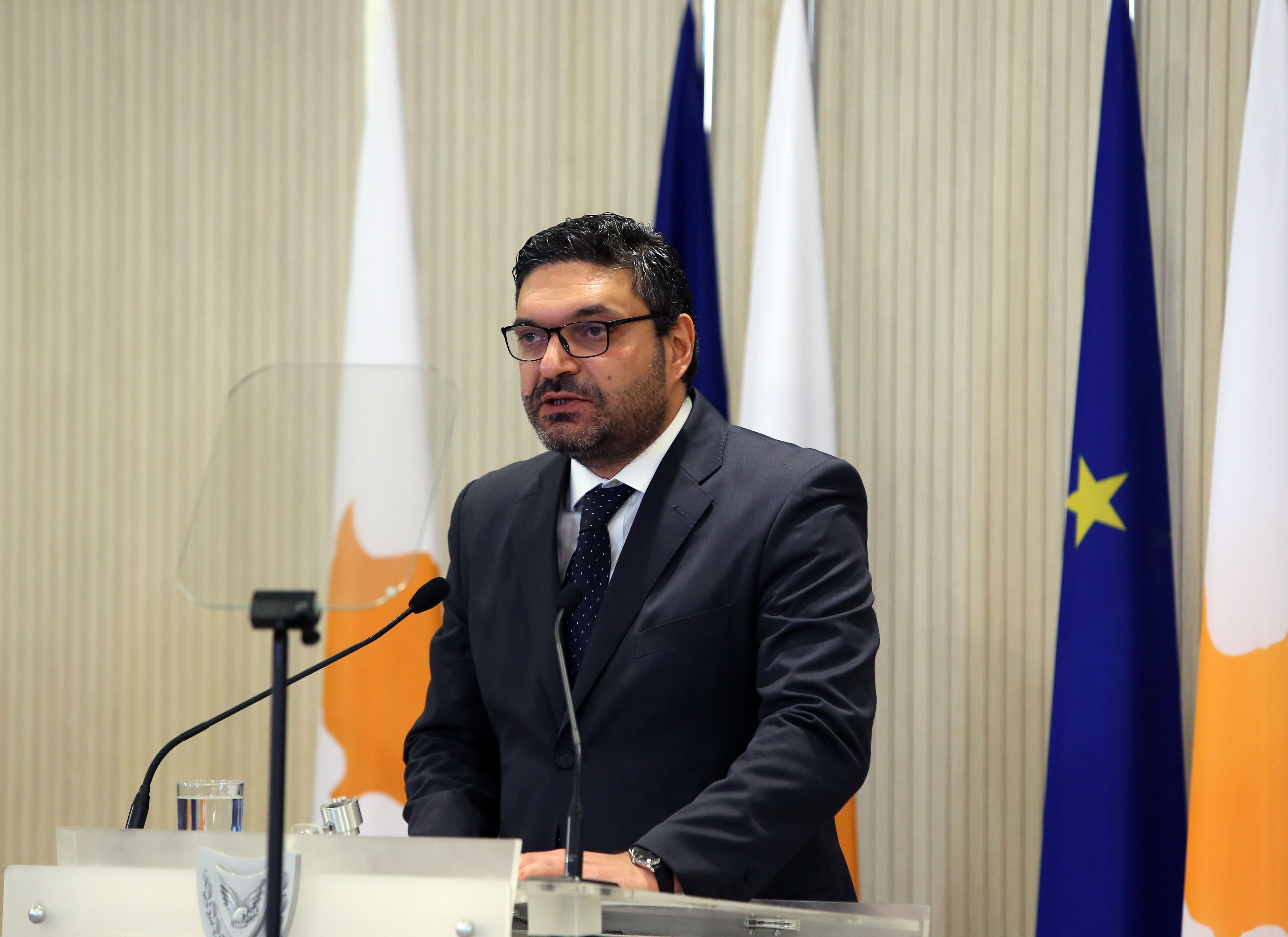Finance Minister Constantinos Petrides on Wednesday unveiled the government’s plans to absorb €968 million in EU structural funds in the period of 2021-2027 with emphasis on the green economy, tackling social disparities and job creation.
This is 30 per cent up on the previous seven-year period and, together with co-financing from national funds, means projects totaling €1.8 billion.
Petrides said that having managed to absorb all 100 per cent of EU funds available to it the previous period, Cyprus aimed to do so again in 2021-2027.
The €968m will come from the European Regional Development Fund (€467m), the European Social Fund (€222m), the Cohesion Fund (€179m) and the Just Transition Fund (€101m).
However, the funds can only be drawn through a budget, and are therefore contingent on the House approving the revised 2021 state budget that is expected to be put to the plenary on Monday.
Outlining the various projects, Petrides said €315m was budgeted under policy objective one – ‘a smarter Europe’ – and covers research, innovation, digital transformation and entrepreneurship.
“From the beginning we wanted to boost this effort and the businesses themselves, for sums to go directly to the businessmen, the small companies so that they can become more competitive, more viable and modern,” he said.
Petrides said €100m was being earmarked to subsidise up to 60 per cent of the cost of establishing new businesses, with additional sums for young people aged up to 29 and women, subsidies for manufacturing and other targeted sectors and subsidising the cost of digitally upgrading existing SMEs and promoting e-commerce.
Also included are research and development projects of €130m to cover for example upgrading or creating research infrastructure at research centres, universities and businesses.
And €85m will be used for digitalisation projects in the public sector, for example for patients’ health records.
Policy objective two, with a €728m budget for a greener Europe, includes €167m to lower carbon emissions through investments in cleaner energy, including energy upgrades of public buildings, schools and homes (€143m), recycling municipal waste (€83m) and water management (€195m).
Also included are cycle lanes, foot paths, smart traffic lights, priority bus lanes and subsidies for electric vehicles (€120m).
And €20m is earmarked for biodiversity such as Akamas and other Natura areas and a transition to alternative forms of energy (€167m).
Petrides said policy objective three for a more connected Europe involved €94m that includes projects to upgrade the road network in the mountains, smart transportation systems on the motorways and urban roads and sound barriers on the motorways.
Policy objective 4, a more social Europe, is earmarking €424m for groups of the population who are excluded from the labour market. Money will go to modernise the employment service and incentives for employers to hire the unemployed, practical training for the young, and bringing more women into the labour market by subsidising childcare. In addition, €177m will address poverty with incentives to employ the long-term unemployed, beneficiaries of the minimum guaranteed income, the disabled and unemployed people over 50.
Other plans are improved social services, an autism centre, sheltered living for the disabled and food programmes for the needy.
Finally, the €160m policy objective 5 will provide for investments for sustainable development of urban, rural and coastal areas.







Click here to change your cookie preferences